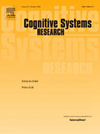Cognitive Systems ResearchSCIESSCI
國際簡稱:COGN SYST RES 參考譯名:認知系統(tǒng)研究
- 基本信息:
- ISSN:1389-0417
- E-ISSN:1389-0417
- 是否OA:未開放
- 是否預(yù)警:否
- TOP期刊:否
- 出版信息:
- 出版地區(qū):NETHERLANDS
- 出版商:Elsevier
- 出版語言:English
- 出版周期:Quarterly
- 出版年份:1999
- 研究方向:工程技術(shù)-計算機:人工智能
- 評價信息:
- 影響因子:2.1
- H-index:41
- CiteScore指數(shù):9.4
- SJR指數(shù):0.957
- SNIP指數(shù):1.549
- 發(fā)文數(shù)據(jù):
- Gold OA文章占比:23.47%
- 研究類文章占比:98.46%
- 年發(fā)文量:65
- 自引率:0.0512...
- 開源占比:0.1452
- 出版撤稿占比:0.0158...
- 出版國人文章占比:0.25
- OA被引用占比:0.0103...
英文簡介Cognitive Systems Research期刊介紹
Cognitive Systems Research is dedicated to the study of human-level cognition. As such, it welcomes papers which advance the understanding, design and applications of cognitive and intelligent systems, both natural and artificial.
The journal brings together a broad community studying cognition in its many facets in vivo and in silico, across the developmental spectrum, focusing on individual capacities or on entire architectures. It aims to foster debate and integrate ideas, concepts, constructs, theories, models and techniques from across different disciplines and different perspectives on human-level cognition. The scope of interest includes the study of cognitive capacities and architectures - both brain-inspired and non-brain-inspired - and the application of cognitive systems to real-world problems as far as it offers insights relevant for the understanding of cognition.
Cognitive Systems Research therefore welcomes mature and cutting-edge research approaching cognition from a systems-oriented perspective, both theoretical and empirically-informed, in the form of original manuscripts, short communications, opinion articles, systematic reviews, and topical survey articles from the fields of Cognitive Science (including Philosophy of Cognitive Science), Artificial Intelligence/Computer Science, Cognitive Robotics, Developmental Science, Psychology, and Neuroscience and Neuromorphic Engineering. Empirical studies will be considered if they are supplemented by theoretical analyses and contributions to theory development and/or computational modelling studies.
期刊簡介Cognitive Systems Research期刊介紹
《Cognitive Systems Research》自1999出版以來,是一本心理學(xué)優(yōu)秀雜志。致力于發(fā)表原創(chuàng)科學(xué)研究結(jié)果,并為心理學(xué)各個領(lǐng)域的原創(chuàng)研究提供一個展示平臺,以促進心理學(xué)領(lǐng)域的的進步。該刊鼓勵先進的、清晰的闡述,從廣泛的視角提供當(dāng)前感興趣的研究主題的新見解,或?qū)彶槎嗄陙砟硞€重要領(lǐng)域的所有重要發(fā)展。該期刊特色在于及時報道心理學(xué)領(lǐng)域的最新進展和新發(fā)現(xiàn)新突破等。該刊近一年未被列入預(yù)警期刊名單,目前已被權(quán)威數(shù)據(jù)庫SCIE、SSCI收錄,得到了廣泛的認可。
該期刊投稿重要關(guān)注點:
Cite Score數(shù)據(jù)(2024年最新版)Cognitive Systems Research Cite Score數(shù)據(jù)
- CiteScore:9.4
- SJR:0.957
- SNIP:1.549
| 學(xué)科類別 | 分區(qū) | 排名 | 百分位 |
| 大類:Psychology 小類:Experimental and Cognitive Psychology | Q1 | 5 / 165 |
97% |
| 大類:Psychology 小類:Cognitive Neuroscience | Q1 | 13 / 115 |
89% |
| 大類:Psychology 小類:Software | Q1 | 65 / 407 |
84% |
| 大類:Psychology 小類:Artificial Intelligence | Q1 | 71 / 350 |
79% |
CiteScore 是由Elsevier(愛思唯爾)推出的另一種評價期刊影響力的文獻計量指標。反映出一家期刊近期發(fā)表論文的年篇均引用次數(shù)。CiteScore以Scopus數(shù)據(jù)庫中收集的引文為基礎(chǔ),針對的是前四年發(fā)表的論文的引文。CiteScore的意義在于,它可以為學(xué)術(shù)界提供一種新的、更全面、更客觀地評價期刊影響力的方法,而不僅僅是通過影響因子(IF)這一單一指標來評價。
中科院SCI分區(qū)Cognitive Systems Research 中科院分區(qū)
| 大類學(xué)科 | 分區(qū) | 小類學(xué)科 | 分區(qū) |
| 心理學(xué) | 3區(qū) | NEUROSCIENCES 神經(jīng)科學(xué) COMPUTER SCIENCE, ARTIFICIAL INTELLIGENCE 計算機:人工智能 PSYCHOLOGY, EXPERIMENTAL 心理學(xué):實驗 | 3區(qū) 4區(qū) 4區(qū) |
中科院分區(qū)表 是以客觀數(shù)據(jù)為基礎(chǔ),運用科學(xué)計量學(xué)方法對國際、國內(nèi)學(xué)術(shù)期刊依據(jù)影響力進行等級劃分的期刊評價標準。它為我國科研、教育機構(gòu)的管理人員、科研工作者提供了一份評價國際學(xué)術(shù)期刊影響力的參考數(shù)據(jù),得到了全國各地高校、科研機構(gòu)的廣泛認可。
中科院分區(qū)表 將所有期刊按照一定指標劃分為1區(qū)、2區(qū)、3區(qū)、4區(qū)四個層次,類似于“優(yōu)、良、及格”等。最開始,這個分區(qū)只是為了方便圖書管理及圖書情報領(lǐng)域的研究和期刊評估。之后中科院分區(qū)逐步發(fā)展成為了一種評價學(xué)術(shù)期刊質(zhì)量的重要工具。
JCR分區(qū)Cognitive Systems Research JCR分區(qū)
| 按JIF指標學(xué)科分區(qū) | 收錄子集 | 分區(qū) | 排名 | 百分位 |
| 學(xué)科:COMPUTER SCIENCE, ARTIFICIAL INTELLIGENCE | SCIE | Q3 | 123 / 197 |
37.8% |
| 學(xué)科:NEUROSCIENCES | SCIE | Q3 | 217 / 310 |
30.2% |
| 學(xué)科:PSYCHOLOGY, EXPERIMENTAL | SSCI | Q2 | 44 / 99 |
56.1% |
| 按JCI指標學(xué)科分區(qū) | 收錄子集 | 分區(qū) | 排名 | 百分位 |
| 學(xué)科:COMPUTER SCIENCE, ARTIFICIAL INTELLIGENCE | SCIE | Q2 | 71 / 198 |
64.39% |
| 學(xué)科:NEUROSCIENCES | SCIE | Q2 | 154 / 310 |
50.48% |
| 學(xué)科:PSYCHOLOGY, EXPERIMENTAL | SSCI | Q2 | 46 / 99 |
54.04% |
JCR分區(qū)的優(yōu)勢在于它可以幫助讀者對學(xué)術(shù)文獻質(zhì)量進行評估。不同學(xué)科的文章引用量可能存在較大的差異,此時單獨依靠影響因子(IF)評價期刊的質(zhì)量可能是存在一定問題的。因此,JCR將期刊按照學(xué)科門類和影響因子分為不同的分區(qū),這樣讀者可以根據(jù)自己的研究領(lǐng)域和需求選擇合適的期刊。
發(fā)文數(shù)據(jù)
- 國家/地區(qū)數(shù)量
- CHINA MAINLAND123
- India58
- USA46
- GERMANY (FED REP GER)22
- England20
- Brazil13
- Italy13
- Japan11
- France10
- South Korea10
本刊中國學(xué)者近年發(fā)表論文
-
1、Research about the university teaching performance evaluation under the data envelopment method
Author: Xiaoyue Zhang, Wanbing Shi
Journal: Cognitive Systems Research, 2019, Vol., , DOI:10.1016/j.cogsys.2018.11.004
-
2、Cognitive guidance and improvement of Alzheimer's disease patients based on human-computer interaction design
Author: Ying Gao
Journal: Cognitive Systems Research, 2019, Vol., , DOI:10.1016/j.cogsys.2018.12.006
-
3、Research on Intelligent Cognitive Function Enhancement of Intelligent Robot Based on Ant Colony Algorithm
Author: Yang Jian, Yang Li
Journal: Cognitive Systems Research, 2019, Vol., , DOI:10.1016/j.cogsys.2018.12.014
-
4、Analysis and research on mental health of college students based on cognitive computing
Author: Mengmeng Chen, Suo Jiang
Journal: Cognitive Systems Research, 2019, Vol., , DOI:10.1016/j.cogsys.2019.03.003
-
5、The performance space measurement of regional innovation system based on neuropsychology
Author: T.W. Teng, J.Y. Chen
Journal: Cognitive Systems Research, 2019, Vol., , DOI:10.1016/j.cogsys.2018.10.034
-
6、The translation and introduction of Mo Yan's works based on neurolinguistics
Author: Baomei Song, Chencong Liu
Journal: Cognitive Systems Research, 2019, Vol., , DOI:10.1016/j.cogsys.2018.11.003
-
7、Law, discipline and governance based on cognitive process simulation – analysis of legal forms in the modern rights relationship
Author: Yong Ma, Rongxia Zhang, Tongqiang Zong
Journal: Cognitive Systems Research, 2018, Vol., , DOI:10.1016/j.cogsys.2018.10.035
-
8、Detecting air-gapped attacks using machine learning
Author: Weijun Zhu, Joel J.P.C. Rodrigues, Jianwei Niu, Qinglei Zhou, Yafei Li, Mingliang Xu, Bohu Huang
Journal: Cognitive Systems Research, 2018, Vol., , DOI:10.1016/j.cogsys.2018.10.018
投稿常見問題
-
請問這本期刊屬于什么級別呢?可用于職稱評定嗎?
一般刊物只分省級、部級、核心,期刊本身是沒有幾類劃分的,具體是幾類或者幾級,您可以對照單位的分類文件確認一下。Cognitive Systems Research雜志是由Elsevier出版的一本SCIE、SSCI,可用于職稱評定。
-
你們能夠提供哪些核心期刊的咨詢服務(wù)?
大多數(shù)核心期刊我們都是可以提供咨詢服務(wù)的。目前核心期刊主要分為以下幾類:1.國內(nèi)核心:按照權(quán)威度排序,社科類:南大核心>南大擴展>北大核心>科技核心 按照權(quán)威度排序。工科類:CSCD C庫>CSCD E庫(相當(dāng)于CSCD擴展)>北大核心>科技核心。2.國外核心(全英文):按照權(quán)威度排序為:SSCI=SCI>EI>ISTP=CPCI。
-
想快速發(fā)表,可以加急嗎?
為了確保您的職稱評定順利進行,我們建議提前半年到一年開始準備,這樣能夠保證有充足的時間來處理所有相關(guān)事宜。如果客戶需要加急服務(wù),我們會與雜志社進行溝通,以確定是否可以提供加急服務(wù)。請注意,如果確認可以加急,可能會收取一定的加急費用。
-
你們提供的服務(wù)可以確保稿件被發(fā)表嗎?
期刊編輯會綜合考慮多個因素,如發(fā)表范圍、學(xué)術(shù)價值和原創(chuàng)性等,對稿件進行綜合評估。盡管任何機構(gòu)均無法保證每篇稿件都會被發(fā)表,但我們可以用專業(yè)知識和豐富經(jīng)驗,協(xié)助您理解并遵循期刊的發(fā)表要求,從而提高您的稿件被發(fā)表的機率。
-
請問期刊發(fā)表的費用如何?
期刊發(fā)表的費用因期刊不同而異。根據(jù)您的需求,我們會為您推薦性價比最高的期刊,并提供專業(yè)的期刊供您選擇。一般來說,只要符合職稱要求,大多數(shù)作者都會選擇性價比最高的期刊作為意向期刊進行重點咨詢。我們會為您提供詳細的期刊信息和費用說明,以確保您能夠做出明智的選擇。
-
如果稿件被拒,未能成功發(fā)表,費用是否可以退還?
一般來說,我們推薦的期刊和您的專業(yè)方向、文章情況都是匹配的,極少出現(xiàn)稿件被拒的情況。如果稿件被拒,期刊編輯會提供詳細的拒稿信和建議,以幫助您了解拒稿原因并改進您的稿件。關(guān)于退款政策,具體情況可能因期刊不同而異,請您咨詢我們的工作人員以獲取詳細信息。
相關(guān)期刊推薦
-
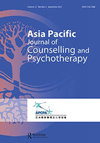
Asia Pacific Journal Of Counselling And Psychotherapy
中科院 4區(qū) JCR Q4
大類:心理學(xué)
-
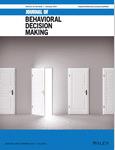
Journal Of Behavioral Decision Making
中科院 3區(qū) JCR Q3
大類:心理學(xué)
-
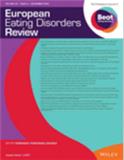
European Eating Disorders Review
中科院 2區(qū) JCR Q1
大類:心理學(xué)
-
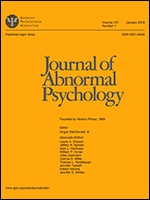
Journal Of Abnormal Psychology
中科院 1區(qū) JCR Q1
大類:心理學(xué)
-
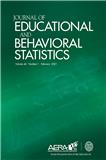
Journal Of Educational And Behavioral Statistics
中科院 3區(qū) JCR Q2
大類:心理學(xué)
-
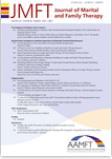
Journal Of Marital And Family Therapy
中科院 3區(qū) JCR Q2
大類:心理學(xué)
熱門期刊推薦
-
International Journal Of Behavioral Medicine
中科院 3區(qū) JCR Q3
-
Computers In Human Behavior
中科院 1區(qū) JCR Q1
-
Bmc Psychology
中科院 3區(qū) JCR Q1
-
Current Psychology
中科院 3區(qū) JCR Q2
-
Journal Of Abnormal Psychology
中科院 1區(qū) JCR Q1
-
Psychonomic Bulletin & Review
中科院 3區(qū) JCR Q1
-
Journal Of Applied Psychology
中科院 1區(qū) JCR Q1
-
Journal Of Educational Psychology
中科院 1區(qū) JCR Q1
